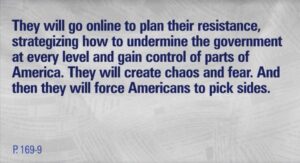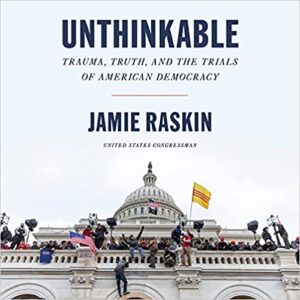Corporate Owned Media
Dirty Laundry
February 9, 2022“It’s all about big dirty money.”
-Adam McKay
(Producer, screenwriter, ‘Don’t Look Up!’)
Corporate owned media. Pretty much all of it. -dayle
The Daily Poster
Corporate Media Is The Misinformation Problem
BY DAVID SIROTA
“Misinformation” is all the rage these days — it’s the topic du jour. Pollssuggest we all agree that it’s a problem, and lately liberals appear most mad at it — but seemingly only at certain kinds of misinformation that originate outside the corporate media sphere.
Notably, the ire is rarely directed at a corporate media machine that systematically rewards and praises the purveyors of misleading propaganda, and continues to flood the country with information sewage.
This selective outrage is a huge problem — because the only way to systematically combat misinformation is to construct a Fourth Estate that develops some trust with the audience. That trust will never be rebuilt if liberals pretend to hate misinformation while they patronize a media establishment that fortifies the pathologies that originally created a credibility crisis.
Consider the past week of media news, while the Joe Rogan controversy dominated headlines:
NBC News hired Stephen Hayes, one of the key architects of Iraq War misinformation, to serve as a political analyst across all of its properties amid a media drumbeat for a war with Russia. Despite Hayes publishing the seminal book amplifying one of the most egregious lies of the Iraq debacle, NBC’s Chuck Todd lauded him as “a principled reporter and analyst who always puts truth and facts above emotion and sentiment.” Meanwhile, CNN just hiredanother Iraq War proponent, right-wing propagandist Jonah Goldberg.
Speaking of CNN, its employees effusively praised their network’s recently deposed president, Jeff Zucker, even after Zucker oversaw the lionization of Andrew Cuomo while the New York governor was shielding his health care industry donors from legal consequences amid a massacre of nursing home residents. Rolling Stone reported that one source said Zucker was personally involved in engineering the Cuomo promotion — and even helped write talking points for the governor.
Corporate media began touting a comeback for Cuomo and his brother, Chris, with no mention of the nursing home catastrophe, as if nothing bad happened over the last two years.
An MSNBC-platformed Washington newsletter blasted out propaganda touting Kroger’s “great pay and benefits” — even as thousands of its employees are struggling to afford basic necessities, and even as the grocery chain bankrolls lobbying groups working to kill union rights legislation.
The New York Times told its readers that President Joe Biden’s “big climate goals depend on Congress” — somehow not mentioning that they also depend on Biden, who has been using his executive authority to expand drilling at a faster pace than President Donald Trump.
Less than two years after the New York Times told its readers that 100,000 pandemic deaths under Trump was “incalculable,” the newspaper has now decided that 900,000 deaths is now a ho-hum story that Americans are bored with. “Though deaths are still mounting, the threat from the virus is moving, for now, farther into the background of daily life for many Americans,” the paper wrote.
MSNBC aired an interview with a New York Times columnist blaming inflation on workers getting COVID relief money, rather than on corporations using their monopoly power to fleece consumers with higher prices that then fund giant executive pay packages and shareholder dividends.
Obviously, multiple wrongs don’t make a right. Rogan platforming public health nonsense and environmental misinformation — and using racial slurs — is not somehow absolved by corporate media concurrently immersing the world in an ocean of self-serving bullshit. His behavior is bad on its own merits. Full stop.
But corporate media doesn’t get to lie the country into a war and a financial crisis, continue enriching right-wing fabulists, offer up news literally “presented by” corporate villains, and then pretend that a podcaster is the singular source of misinformation. And it sure as hell doesn’t get to feign surprise when after decades of lies, almost nobody ends up trusting corporate media about anything.
Despite crocodile tears about “free speech,” none of the central players in the hullabaloo are heroes or victims — they are all making a mint off selling controversy, garbage, and fake outrage. And it’s hardly a surprise that the loudest of them screaming about censorship have had little to say about the most pervasive censorship of all: corporate media’s near-complete erasure of economic and anti-corruption reporting that might offend business sponsors.
The real victim here is the general public.
We need a Fourth Estate that does not reward peddlers of the most outrageous lies — like, say, a Saddam-Al Qaeda “connection” — with prominent gigs.
We need television networks whose anchors don’t run out onto the airwaves to defend top brass amid reports that they helped politicians and political operatives effectively cover up a public health disaster.
And we need an information infrastructure that preferences accurate, verifiable, and indisputable facts so that the public can make informed decisions.
We don’t have much of that right now, in part because political tribalism has taught audiences to selectively love and hate misinformation based on whether it comes from “their” team.
Many liberals love monikers like “believe science” and see themselves as dispassionate protectors of the truth. But let’s be clear: If you’re a liberal who purports to hate misinformation but also cheers on Liz Cheney or Bill Kristol or some other war propagandist as a beacon of integrity just because you see them defending Democrats or bashing Donald Trump on your favorite TV network, then you don’t actually hate misinformation — you just happen to like your misinformation colored blue (even if that misinformation was previously colored neocon red).
Likewise, if you are a Rogan fan or a Fox News maven who purports to want the “real truth” while you cheer him or Tucker Carlson peddling climate denial and vaccine misinformation, then you don’t actually care about truth at all.
And if you’re in corporate media and think it’s OK for your news outlet to routinely skew and cover up the crimes of politicians and business, then you’re not actually interested in journalism’s mission to comfort the afflicted, and afflict the comfortable.
The difference between “media” and actual journalism is the root of the misinformation crisis. We’re drowning in content that is increasingly valued only for its potency in the political wars, rather than judged on its factual merits and its choice of targets. That kind of media content strays farther and farther from reality because it’s about entertaining and inflaming rather than educating and informing.
The answer to misinformation, then, is not some censorship regime, and it’s not more intense fan culture around individual media icons so that everything is a self-enriching culture war between cable TV pundits and Spotify hosts.
The answer is an audience that actually values accurate and necessary information, even if it offends their preconceived notions — an audience that runs away from corporate media outlets that force-feed them lies and liars, and runs toward news organizations that report hard truths.
That’s the kind of news organization we’re working to build here. And we know it’s going to take a long time to build a true independent and trustworthy Fourth Estate in the wreckage of a corporate media landscape, where the flames of bullshit smolder and suffocate the discourse.
But that’s the only way forward.
#
From David.
“Friends:
Yesterday, I learned that I am a nominee for an Academy Award in the best original screenplay category for my work on the film Don’t Look Up. The fact that the film, a climate allegory, has achieved such critical and popular success is a testament to the growing demand for efforts that buck corporate media narratives and challenge power. I am stunned and truly grateful for this Oscar nomination. To celebrate this honor, we are making the replay of our Don’t Look Up live chat with director Adam McKay free for all members — please click here to watch. https://www.dailyposter.com/1-5-live-chat/ Thanks again for your support, and if you are able to financially support our mission, please consider becoming a paying subscriber or donating through our tip jar. Onward!
Rock the boat,
Sirota
“I want to dedicate this song to Rupert Murdoch.”
https://music.youtube.com/watch?v=J_Q8ldj7TKQ&list=RDAMVMJ_Q8ldj7TKQ
Darrell Lee, this is for you. {xo}
~
Dirty Laundry
The Eagles
I make my livin’ off the evenin’ news
Just give me somethin’, somethin’ I can use
People love it when you lose
They love dirty laundry
Well, I coulda’ been an actor, but I wound up here
I just have to look good, I don’t have to be clear
Come and whisper in my ear
Give us dirty laundry
We got the bubble-headed bleached-blonde, comes on at five
She can tell you ’bout the plane crash with a gleam in her eye
It’s interesting when people die
Give us dirty laundry
You don’t really need to find out what’s goin’ on
You don’t really wanna know just how far it’s gone
Just leave well enough alone
Eat your dirty laundry
Dirty little secrets, dirty little lies
We got our dirty little fingers in everybody’s pie
We love to cut you down to size
We love dirty laundry
We can do “The Innuendo”, we can dance and sing
When it’s said and done, we haven’t told you a thing
We all know that crap is king
Give us dirty laundry!
“As a nation, we have begun to float off into a moral void, and all the sermons of all the priests in the country (if they preach at all) are not going to help much. We have got to the point where the promulgation of any kind of moral standard automatically releases an anti-moral response in a whole lot of people. It is not with them, above all, that I am concerned, but with the “good” people, the right-thinking people, who stick to principle, all right, except where it conflicts with the chance to make money. It seems to me that there are very dangerous ambiguities about our democracy in its actual present condition. I wonder to what extent our ideals are not a front for organized selfishness and systemic irresponsibility. If our affluent society ever breaks down and the facade is taken away, what are we going to have left?”
-Thomas Merton, 1961
Is now like then?
January 18, 2022Sound familiar?
“To control information is to control the world. This innovative history reveals how, across two devastating wars, Germany attempted to build a powerful communication empire―and how the Nazis manipulated the news to rise to dominance in Europe and further their global agenda.”
“Information warfare may seem like a new feature of our contemporary digital world. [And FOX media/Rupert Murdoch.] But it was just as crucial a century ago, when the great powers competed to control and expand their empires. In News from Germany, Heidi Tworek uncovers how Germans fought to regulate information at home and used the innovation of wireless technology to magnify their power abroad.”
pp. 3-4:
“In 1926, 90% of all newspapers had no correspondents abroad or in Berlin. They received all their national and international news through news agencies or syndicate services. Today, we worry about whether Facebook or Google hold monopolies over information provision. New agencies exerted an arguable even greater grasp over national and international news in the first half the 20th Century.
(Always follow the money…corporate owned media. -dayle)
p. 229:
“In the second half of the 20th century, newspaper ownership seemed like license to print money. Newspapers averaged annual returns of in the United States. Some newspapers generated profits of 30%. In comparison, grocery store profits were in the 2% range and department stores around 4%. In non-exceptional periods, when profits are hard to come by, companies become more reliant on the state or more susceptible to outside control The problem of profits has long made news firms likelier to participate in business arrangements like cartels and monopolies as well as more open to outside influences..
p. 231:
“When elites no longer believe in upholding democratic institutions, a free press alone could not stop a democracy’s disintegration. Democracy can die in full daylight, and has done before.”
[The book, 2019, has received the Fraenkel Prize from the Wiener Holocaust Library and the Ralph Gomory Prize from the Business History Conference and the Alfred P. Sloan Foundation.]
Sage Publication Journals
https://journals.sagepub.com/doi/full/10.1007/s12290-014-0315-5
[2014]
Economic Crisis and Political Extremism in Europe: From the 1930s to the Present
by, Antonis Klapas
Historical experience shows that when economic conditions remain bad for a significant period of time people tend to become more radical as far as their electoral behaviour is concerned. However, no matter how strong the linkage between economic crisis and the rise of political extremism might be, economic crisis is not the only factor to be taken into account when analysing the phenomenon of political extremism, as other parameters (historical, social and so on) are also important.
The economic crisis of the 1930s had a profound effect on European politics. The vicious circle of underdevelopment, unemployment and poverty that started in 1929 created massive social problems and thus favoured the strengthening of extremist parties, especially far-right ones (Table 1). The case of Germany was probably the most characteristic and definitely the most important one as far as its long-term consequences were concerned. Before 1929 Adolf Hitler’s National Socialist party was nothing more than a marginal political force. In the German federal elections of May 1928 they won only 2.63 % of the vote. Just two and a half years later, in September 1930 they secured 18.25 %. In the elections of July 1932 they came first with 37.27 %, a place that they managed to hold in November of the same year despite the fact that their share of the vote was reduced to 33.09 % (Gonschior 2005). On 30 January 1933 Hitler became chancellor of Germany and gradually began to impose his dictatorial and racist regime. The Weimar Republic was dead. Europe was, little by little, sliding towards the abyss of the Second World War.
The establishment of Benito Mussolini’s FASCIST regime in Italy in 1922 had already paved the way towards the dominance of political extremism. However, it was only in the 1930s that anti-democratic parties across Europe became more successful.
As in the 1930s, today most far-right extremists promise to overthrow the established political system. In general, they describe politicians (excluding themselves, of course) as corrupt and decadent. They take advantage of the mass media (with special emphasis on social media which give them the opportunity to attract the attention of younger audiences) in order to get their messages across. They make extensive use of stereotypes to address the public and they use black-and-white arguments which, despite their poor reasoning, sound reasonable to the average voter. They are conservative on societal issues and sometimes openly homophobic. They reject liberal ideas and they have racist tendencies. They underline the threat of the expansion of Islam in Europe, while at the same time some of them are anti-Semitic. They point to immigrants as one of the main causes (if not the main cause) of all sorts of problems, from unemployment to high criminality. In some cases, they do not disapprove of and talk with respect or even admiration about FASCIST and Nazi leaders of the past. There are also those who do not hesitate to resort to violence in order to intimidate others.
AXIOS
1.18.22:
Trust in governments around the world is collapsing, especially in democracies, Axios Media Trends author Sara Fischer writes from a new global survey.
- Why it matters: People don’t think government, business or the media are telling them the truth. This suspicion of societal institutions is pushing people into smaller, more insular circles of trust.
Government leaders and journalists are the least-trusted societal leaders, according to Edelman’s 2022 global “Trust Barometer,” a survey of 35,000 respondents in 28 countries.
- A majority of people globally believe journalists (67%), government leaders (66%) and business executives (63%) are “purposely trying to mislead people by saying things they know are false or gross exaggerations.”
- Around the world, people fear the media is becoming more sensational for commercial gain and that government leaders continue to exploit divisions for political gain.
[Trust in neighbors and co-workers has apparently ⬆️.]
[AXIOS-Sarah Fischer]
ON THE MEDIA
#MustListen
Since the insurrection on January 6, warnings of a second American Civil War have been sounded. This week, On the Media explores whether the civil war talk is an alarmist cry, or actually a sober assessment. Plus, hear how the myth of “the Dark Ages” paints an unfair portrait of medieval times.
1. David Remnick, editor of The New Yorker and host of the New Yorker Radio Hour, on the risk of second civil war. Listen.
“In the current context, is ‘Civil War’ a metaphor, a proposed diagnosis for what ails our country? Or is it meant to be taken literally? In a recent essay in The New Yorker, editor David Remnick suggests both. He writes that ‘for the first time in two hundred years, we are suspended between democracy and autocracy. And that sense of uncertainty radically heightens the likelihood of episodic bloodletting in America, and even the risk of civil war.’ Remnick tells Brooke about the value of ‘a journalism of warning,’ and why cautions of civil war should be heeded. -OTM
2. Barbara Walter [@bfwalter], professor of International Relations at the University of California, San Diego, on the tell-tale signs that a country is headed for insurgence. Listen.
“To a subset of the White population here this is deeply, deeply threatening… They see the United States as a White Christian country. And they feel like they’re justified to fight to maintain it.”
“Sadly, if we remain ignorant about how power operates in American politics, then people with nefarious purposes will step in and take it away from us. It’s why a civics curriculum in schools would create a stronger electorate and lead to greater faith & trust in the system.”
‘Everybody thought their civil war was unique,’Barbara F. Walter writes in her new book, How Civil Wars Start: And How To Stop Them. ‘So no one saw the risk factors that emerged again and again no matter where war broke out.” According to Walter, who has studied civil wars around the world for the past three decades — from Syria to Northern Ireland to Sri Lanka — the same warning signs appear each time. And now Walter says she sees those same signs here, in the United States. This week, she discusses them with Brooke.” -OTM
Anocracy or semi-democracy: a form of government that is loosely defined as part democracy and part dictatorship, or as a “regime that mixes democratic with autocratic features.” … Such regimes are particularly susceptible to outbreaks of armed conflict and unexpected or adverse changes in leadership. [wikipedia]
According to Professor Walter, a new Civil War would not look like the old one…
[Image: MSNBC]
U.S. democracy downgraded in 2016 and 2019. “U.S. no longer deemed longest consistent democracy.” It is now Switzerland.
#Anocracy
3. Charlie Warzel [@cwarzel], journalist and contributing writer at The Atlantic, on when journalists should sound the alarm (and how loud we should ring it). Listen.
“Since the anniversary of January 6th, the pundit industrial complex has been churning out new ‘takes’ on a possible civil war every day. Could it be “like the summer of 2020, but 10 times bigger”, or ‘a Seinfeld civil war’— a war about nothing? Amid the noise, it has only become more difficult to determine the proper level of alarm. Journalist Charlie Warzel tried to help everyone calibrate in the latest installment of his newsletter for The Atlantic, Galaxy Brain. This week, Brooke and Charlie discuss the role of alarmism in the face of seemingly existential problems, and who the real ‘doomsayers’ actually are.
4. David M. Perry [@Lollardfish] and Matthew Gabriele [@prof_gabriele], authors of The Bright Ages: A New History of Medieval Europe, on how the Dark Ages might have not been so dark. Listen.
Today, when we encounter the medieval world it’s mostly a dark time. Un-enlightened by reason, but also literally gloomy – all bare stone and grey skies. We know it as a brutal time, dominated by white men with steeds and swords, or drenched in blood by marauding Vikings. But in their new book, The Bright Ages: A New History of Medieval Europe, historians Matthew Gabriele and David M. Perry trace the harm of the myths of the “Dark Ages,” and illuminate the medieval stories that have mostly escaped our modern gaze. -OTM
Boise State Public Radio
#MustListen
Excellent reporting from journalist Heath Druzin and the team at KBSX, Boise State Public Radio.
‘This podcast takes you inside the world of ascendant Patriot Movement, the militia members & far-right activists who are simultaneously preparing to fight the government & become part of it.’
https://podcasts.apple.com/us/podcast/extremely-american/id1599294971
Voices of Freedom, edited/produced by me; see if you can the identify the speakers. -dayle
‘Congressman Jamie Raskin has proudly represented Maryland’s 8th Congressional District in the U.S. House of Representatives since 2017. Prior to his time in Congress, Raskin was a three-term State Senator in Maryland and the Senate Majority Whip. He was also a professor of constitutional law at American University’s Washington College of Law for more than 25 years.’
[His book is #1 this week on the NYTimes hardcover non-fiction Best Seller’s List.]
“I have learned that trauma can steal everything from you that is most precious and rip joy right out of your life,” Raskin writes. “But, paradoxically, it can also make you stronger and wiser, and connect you more deeply to other people than you ever imagined by enabling you to touch their misfortunes and integrate their losses and pain with your own.”
“If a person can grow through unthinkable trauma and loss,” Raskin continues, “perhaps a nation may, too.” [NPR]
“When everything looks hopeless, you are the hope.”
-Marcus Raskin
U P D A T E
Like Germany, pre-WWII. This from Gallup, February 2022. Posted by political scientist Ian Bremmer on Twitter.
Overall quality of life:
2020: 84% 2022: 69%
System of government:
2020: 43% 2022: 30%
Economy:
2020: 68% 2022: 33%
Role in world:
2020: 43% 2022: 37%
He knows what he’s doing.
December 13, 2021And the general media can’t seem to go deeper than beyond the flash of a few words and click-bating headlines.
Vladimir Putin.
Sends his condolences to the victims of the tornadoes in the United States. Really?
Claims he once worked as a taxi driver to overcome the hardships of the Soviet Union collapse. Think, who’s he speaking to?
As propaganda media continues to extol the virtues of Putin, he is speaking to a particular group in the United States, remolding his plan and hate for our country. He knows no bounds, and will amplify every conceivable effort to continue to divide and end what little democracy remains.
Pay attention.
Read journalism from non-corporate owned media. Follow the money, always.
#Journalism
#Authoritarianism
#Democracy
Statement of Shared Purpose
October 27, 2020For journalists and consumers of news and information.
Principles of Journalism
In 1997, an organization then administered by PEJ, the Committee of Concerned Journalists, began a national conversation among citizens and news people to identify and clarify the principles that underlie journalism. After four years of research, including 20 public forums around the country, a reading of journalism history, a national survey of journalists, and more, the group released a Statement of Shared Purpose that identified nine principles. These became the basis for The Elements of Journalism, the book by PEJ Director Tom Rosenstiel and CCJ Chairman and PEJ Senior Counselor Bill Kovach. Here are those principles, as outlined in the original Statement of Shared Purpose.
A STATEMENT OF PURPOSE
After extended examination by journalists themselves of the character of journalism at the end of the twentieth century, we offer this common understanding of what defines our work. The central purpose of journalism is to provide citizens with accurate and reliable information they need to function in a free society.
This encompasses myriad roles helping define community, creating common language and common knowledge, identifying a community’s goals, heroes and villains, and pushing people beyond complacency. This purpose also involves other requirements, such as
- being entertaining,
- serving as watchdog,
- offering voice to the voiceless.
Over time, journalists have developed nine core principles to meet the task. They comprise what might be described as the theory of journalism.
1. Journalism’s first obligation is to the truth
Democracy depends on citizens having reliable, accurate facts put in a meaningful context. Journalism does not pursue truth in an absolute or philosophical sense, but it can and must pursue it in a practical sense. This “journalistic truth” is a process that begins with the professional discipline of assembling and verifying facts. Then journalists try to convey a fair and reliable account of their meaning, valid for now, subject to further investigation. Journalists should be as transparentas possible about sources and methods, so audiences can make their own assessment of the information. Even in a world of expanding voices, accuracy is the foundation upon which everything else is built: context, interpretation, comment, criticism, analysis and debate. The truth, over time, emerges from this forum. As citizens encounter an ever-greater flow of data, they have more need not less for identifiable sources dedicated to verifying that information and putting it in context.
2. Its first loyalty is to citizens
While news organizations answer to many constituencies, including advertisers and shareholders, the journalists in those organizations must maintain allegiance to citizens and the larger public interest above any other if they are to provide the news without fear or favor. This commitment to citizens first is the basis of a news organization’s credibility; the implied covenant that tells the audience the coverage is not slanted for friends or advertisers. Commitment to citizens also means journalism should present a representative picture of all constituent groups in society. Ignoring certain citizens has the effect of disenfranchising them. The theory underlying the modern news industry has been the belief that credibility builds a broad and loyal audience, and that economic success follows in turn. In that regard, the business people in a news organization also must nurture–not exploit their allegiance to the audience ahead of other considerations.
3. Its essence is a discipline of verification
[BEWARE: CORPORATE OWNED MEDIA]

Journalists rely on a professional discipline for verifying information. When the concept of objectivity originally evolved, it did not imply that journalists are free of bias. It called, rather, for a consistent method of testing information – a transparent approach to evidence – precisely so that personal and cultural biases would not undermine the accuracy of their work. The method is objective; not the journalist. Seeking out multiple witnesses, disclosing as much as possible about sources, or asking various sides for comment, all signal such standards. This discipline of verification is what separates journalism from other modes of communication, such as propaganda, fiction or entertainment. However, the need for professional method is not always fully recognized or refined. While journalism has developed various techniques for determining facts, for instance, it has done less to develop a system for testing the reliability of journalistic interpretation.
4. Its practitioners must maintain an independence from those they cover
Independence is an underlying requirement of journalism, a cornerstone of its reliability. Independence of spirit and mind,rather than neutrality, is the principle journalists must keep in focus. While editorialists and commentators are not neutral, the source of their credibility is still their accuracy, intellectual fairness and ability to inform, not their devotion to a certain group or outcome. In our independence, however, we must avoid any tendency to stray into arrogance, elitism, isolation or nihilism.
5. It must serve as an independent monitor of power
Journalism has an unusual capacity to serve as watchdog over those whose power and position most affect citizens. The Founders recognized this to be a rampart against despotism when they ensured an independent press; courts have affirmed it; citizens rely on it. As journalists, we have an obligation to protect this watchdog freedom by not demeaning it in frivolous use or exploiting it for commercial gain.






